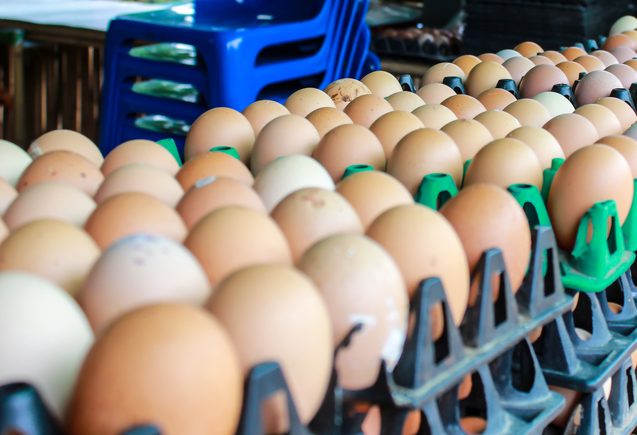Contaminated eggs may have been sold in Dutch shops for a year: Volkskrant

The anti-lice pesticide at the centre of an egg safety scandal in the Netherlands may have been used on Dutch farms as early as June 2016, the Volkskrant said on Wednesday.
The company at the centre of the scandal, Barneveld-based Chickfriend, was treating poultry for lice last year and there is no reason to believe that the product did not contain fipronil at that time, the paper said.
The Dutch food and product safety board NVWA told the paper that eggs containing the banned pesticide fipronil could have been sold in Dutch shops since then, but said: ‘we have no way of checking because the eggs have been eaten’.
Chickfriend is now thought to have bought the pesticide from a Belgian supplier and investigators are now trying to find out if the Dutch firm was aware the product, said to be based on natural oils such as eucalyptus, contained fipronil. The pesticide is classed as ‘moderately hazardous pesticide’ by the World Health Organisation.
On Tuesday the NVWA warned that one batch of eggs poses ‘acute danger’ to human health and eggs from at least 27 other farms should not be eaten by children.
But on Tuesday evening the organisations deputy director told Nieuwsuur that consumers should reduce or stop eating eggs until the samples from almost 200 suspect farms had been checked.
His comments were condemned later by poultry farmers who called them alarmist and unwarranted.
In total, 180 Dutch poultry farms were on the Chickfriend customer list.
Criminal investigation
At the same time, a criminal investigation is underway and several poultry farm owners say they are holding Chickfriend responsible for thousands of euros in damages. The company’s website has been taken down and the phone is not being answered.
The scandal has since spread from the Belgian supplier to clients in Germany, England, France and Poland where the anti-lice product was also sold, Trouw reported on Wednesday.
The Netherlands has almost 1,000 lay hen factory farms producing 11 billion eggs a year, of which over half are exported, mainly to Germany.
Thank you for donating to DutchNews.nl.
We could not provide the Dutch News service, and keep it free of charge, without the generous support of our readers. Your donations allow us to report on issues you tell us matter, and provide you with a summary of the most important Dutch news each day.
Make a donation